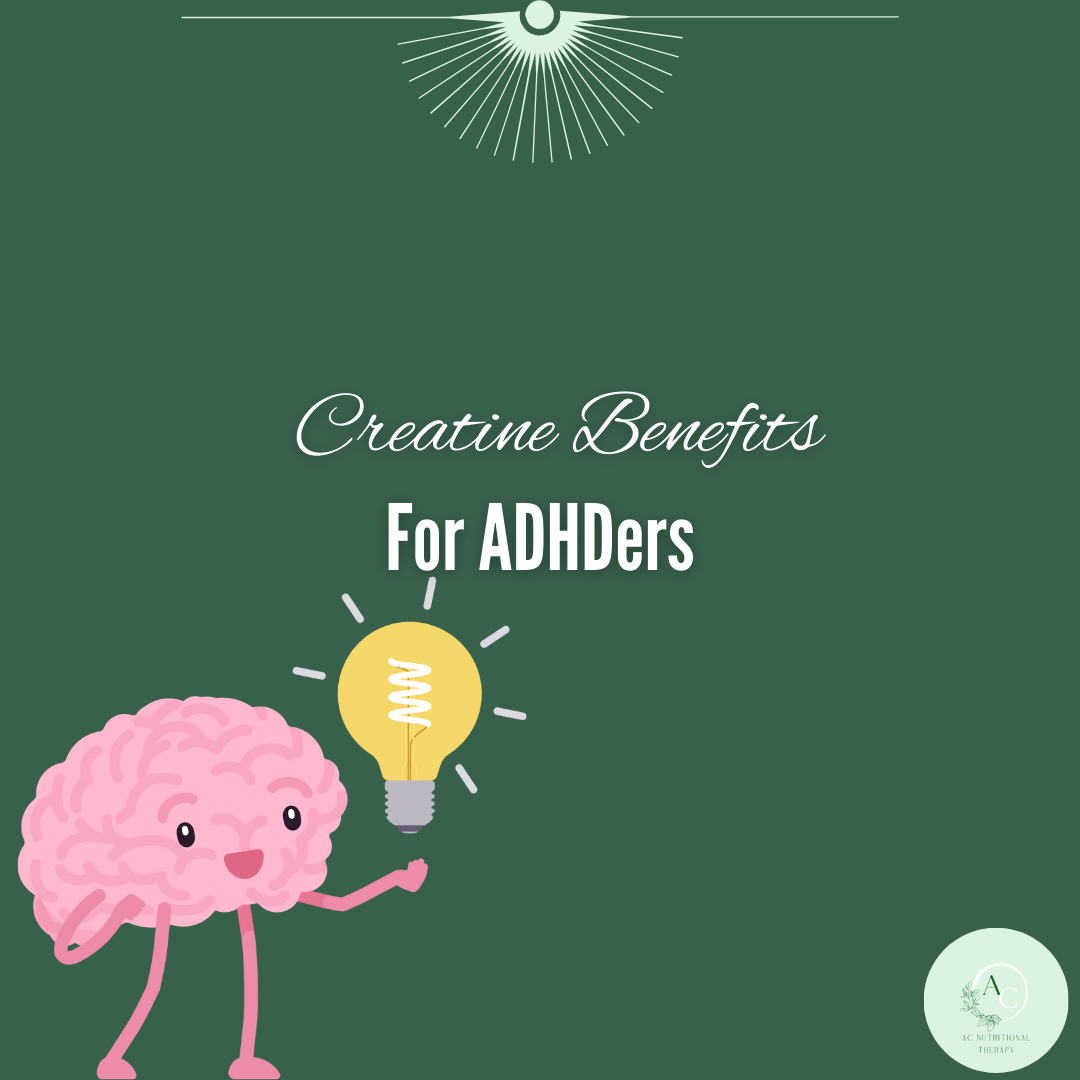Creatine For ADHDers

Creatine, a naturally occurring compound found in the body and certain foods, is commonly known for its role in enhancing athletic performance and muscle growth. However, its benefits extend far beyond the gym. Creatine has emerged as a valuable nutrient for cognitive health, offering potential improvements in mental functions, particularly for individuals with ADHD. Let's explore what creatine is and how it supports brain health.
What is Creatine?
Creatine is a compound synthesized in the liver, kidneys, and pancreas from the amino acids arginine, glycine, and methionine. It is stored primarily in the muscles and, to a lesser extent, in the brain. In the body, creatine plays a crucial role in the production of adenosine triphosphate (ATP), the primary energy currency used by our cells. ATP is essential for a variety of cellular processes, making creatine a key player in maintaining energy levels and overall cellular function.
Boosting Cognitive Processing
By increasing ATP availability, creatine enhances the efficiency of brain cells, leading to faster and more effective information processing. This can be particularly beneficial in situations requiring quick decision-making or problem-solving skills, such as during exams or in high-pressure work environments.
Enhancing Memory
The brain is an energy-intensive organ, and maintaining adequate ATP levels is crucial for optimal cognitive function. Creatine supplementation can support the brain's energy needs, aiding in memory formation and recall. This can be especially useful for students, professionals, or anyone looking to improve their ability to remember and retain new information.
Improving Mental Stamina
Mental fatigue can be a significant barrier to productivity, particularly during long periods of work or study. Creatine's role in ATP production helps sustain mental energy, potentially delaying the onset of fatigue. This can lead to improved focus and cognitive performance over extended periods, making it easier to stay engaged and sharp throughout the day.
Sources of Creatine
While the body naturally produces creatine, it is also found in foods such as red meat, poultry, and fish. For vegetarians, vegans, or those looking to optimise their intake, creatine supplements are a convenient option. These supplements can help ensure that the body and brain have sufficient levels of creatine to support both physical and cognitive functions.
Consultation with a Healthcare Professional
Before adding creatine as a supplement, it's essential to consult with your doctor or therapist. They can help determine if supplementation is necessary and check for any potential interactions with medications or underlying health conditions. This step ensures that adding creatine to your routine is safe and tailored to your individual health needs.
In summary, creatine is a versatile nutrient that supports not only muscle health but also cognitive function. Whether obtained from diet or supplements, incorporating creatine can provide a range of benefits, making it a valuable addition to a well-rounded approach to health and wellness.
